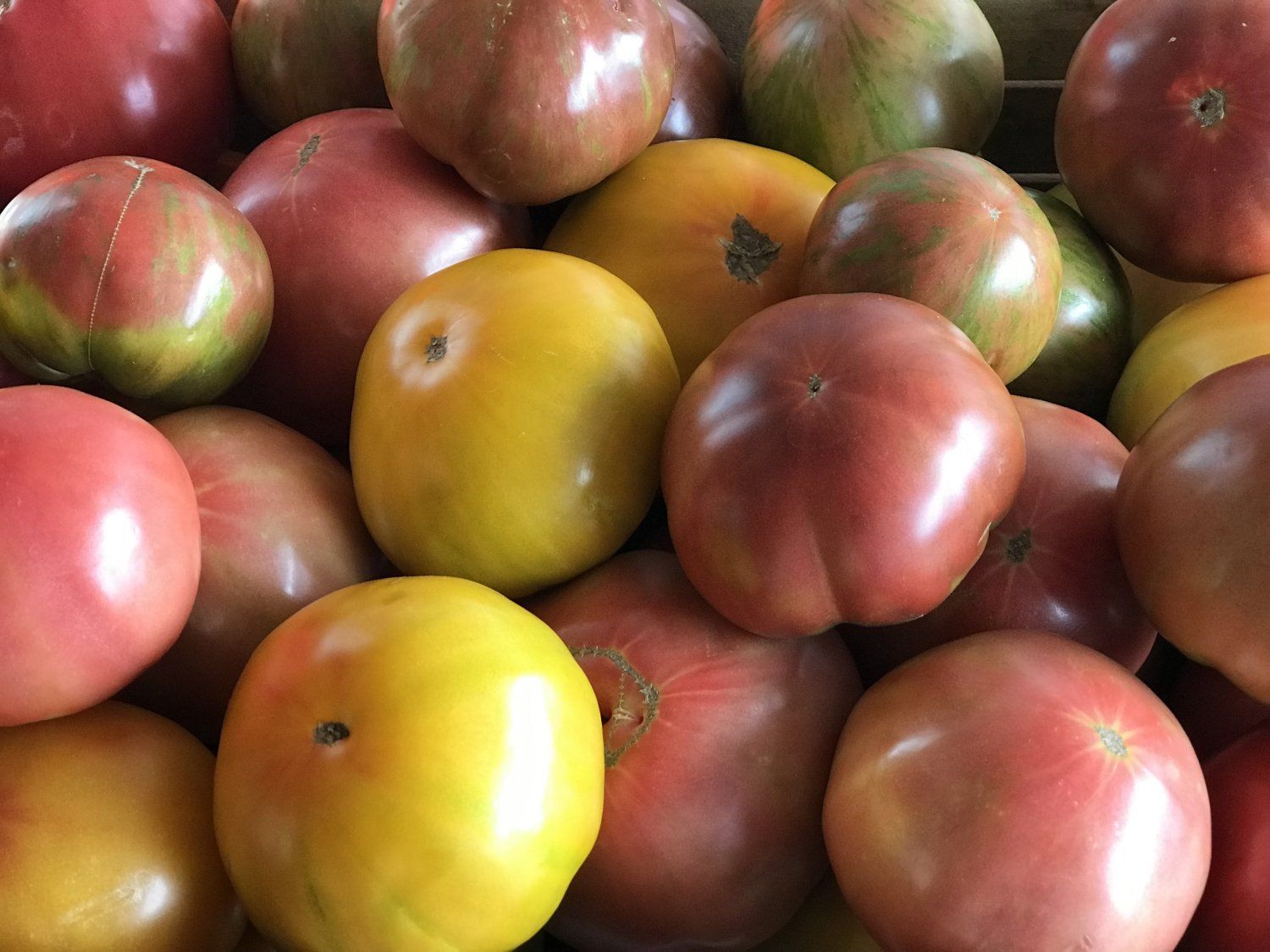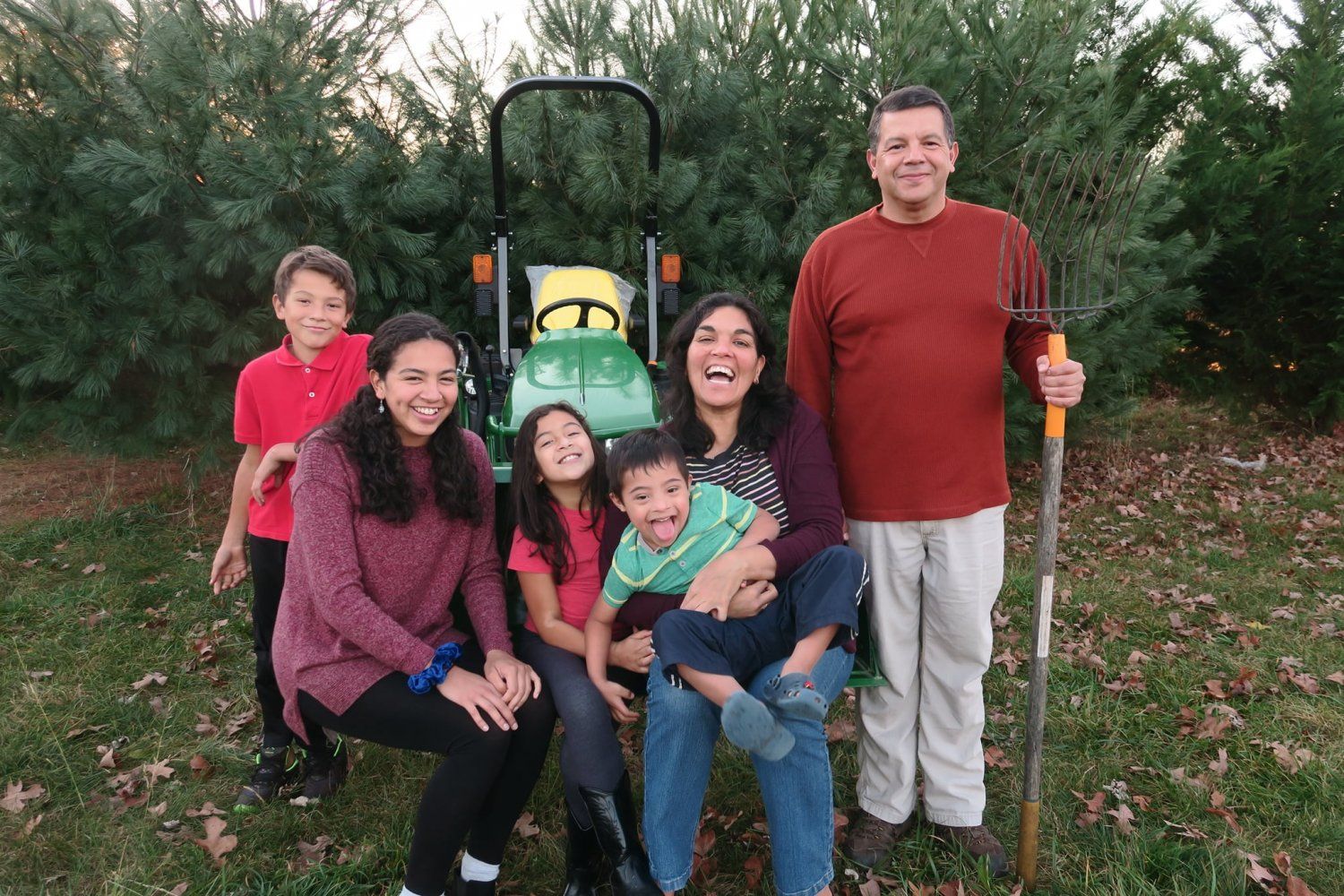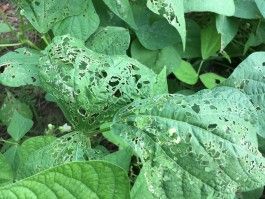Ever since we started our market garden seven years ago green beans have been problematic. And for the past two years it's been almost impossible to grow them. Our main problem has been the Mexican Bean beetle (Epilachna varivestis). They reproduce fast, the hibernate in the ground, and they have no natural predators. The adult beetles themselves are not the problem; their larvae is. Those little yellow things are voracious and can decimate a crop overnight. Our strategy has been hand-picking the adult beetles as soon as we notice their presence. We hope we can keep them from laying their eggs on the underside of the leaves. But this technique has simply not worked for us. We are putting too many hours hand picking the critters and, when we add the fact that green beans are already labor-intensive at harvest time, we simply have a crop that we can't grow commercially this year (sorry you won't see green beans in your CSA boxes). One option is to spray Pyrethrin, an organic-approved bio-pesticide that works on bean beetles but, quite frankly, I'd rather no spray other than compost tea. So, next year, we are adopting a biological strategy and will bring in some parasitic wasps (Pediobius foveolatus), which we can buy from a lab as larvae ready to hatch. These fellas, in turn, will feed on the Mexican Bean beetle larvae and, hopefully will reduce their population to manageable levels. Hurray for biology! So, the prospect of having an abundant crop of green beans next year, officially becomes reason number 1 to renew your CSA with us. For now, though, we let the bean beetles have it.

Back to Farm Happenings at Saint Isidore Homestead and Permaculture
Bean Beetles Win (this time...)
Posted on August 7th, 2021 by Pedro Aponte
About the farm

We are a small family farm located in Grottoes, Virginia, serving the city of Harrisonburg and the counties of Rockingham, Augusta, and Greene. We produce high-quality food using sustainable practices and ethical principles of care for the common good. Having witnessed the healing power of good food in dealing with family health issues, we started farming in 2015 in an effort to sharing with others the benefits of fresh, nutritionally-dense food, grown in a clean environment, using integrative agricultural methods. We believe that in order for food to be healthful, the environment in which it grows has to be healthy. To that end, we integrate animal and plant systems in ways that, in their natural interactions, they create an ecological balance leading to abundance and quality.
We grow over 50 different vegetable crops, perennial vegetables and fruits, and raise pastured pork, as well as ducks and chickens, for meat and eggs.
Go to farm profile
We grow over 50 different vegetable crops, perennial vegetables and fruits, and raise pastured pork, as well as ducks and chickens, for meat and eggs.


